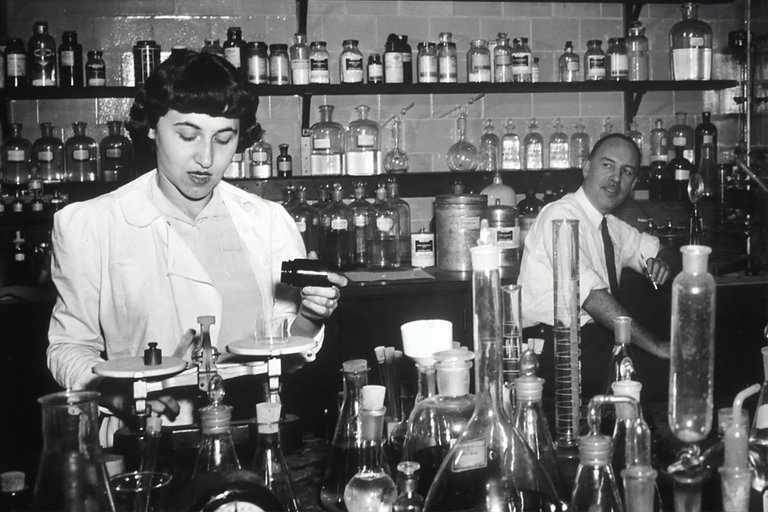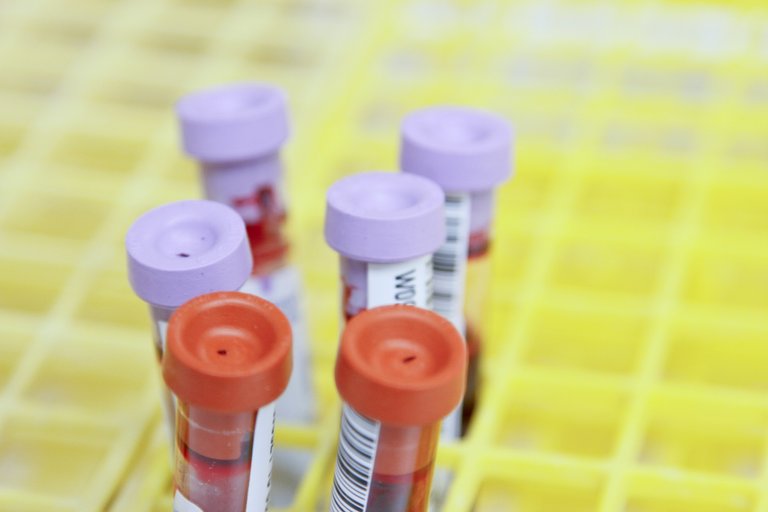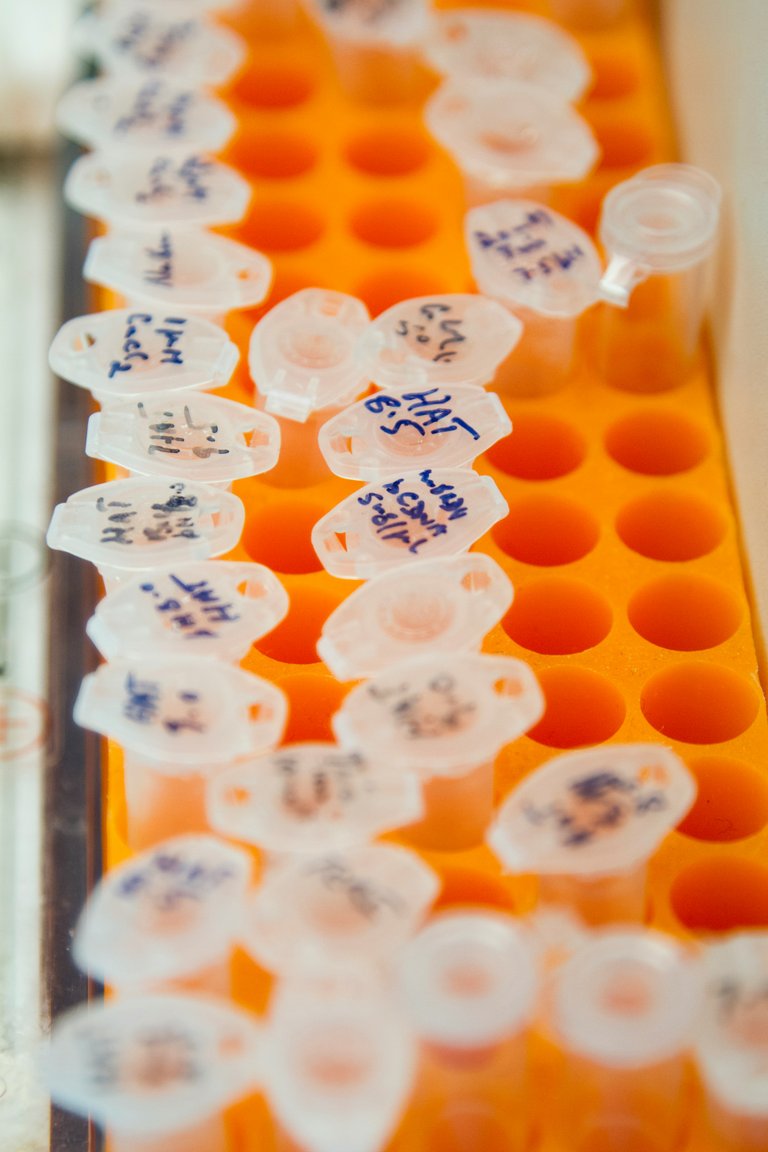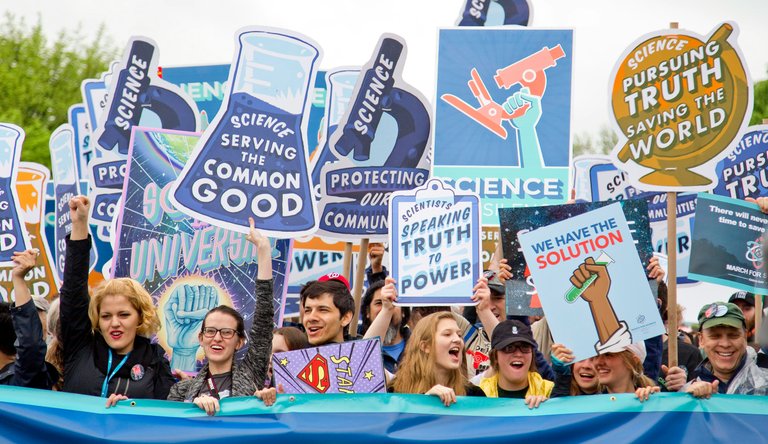Hello Hive Family. I hope you are doing great. This post is my entry to Weekly featured content in the #Hivelearners community. The topic is to write about “Science too far” . How science has amazed people with its progress? Is it good thing for human beings?

Source
People started science by being curious about the world around them. They watched what happened in nature and tried to figure out why things worked the way they did. They tested their ideas to see if they were right. This led to more discoveries and a better understanding of how things work. So, science began with people asking questions and trying to find answers.
Scientists have been working on making life in a lab for a long time. About thirty years ago, they started changing the genes of living things. They move genes from one species to another to make organisms better or work differently. This might sound like something from a fantasy game, but it's real. Genetically modified organisms (GMOs) are common now. For example, we eat genetically modified crops every day, and genetically modified bacteria are used in medicine and other fields.

Source
Genetic engineering has become a powerful tool in many areas. Recently, a famous geneticist named Craig Venter made a living organism from synthetic chemicals. This showed that we can make working genomes using only chemicals. This means genetic engineers can create new genomes instead of just changing existing ones. This gives them more opportunities in their work.
But genetic engineering also has risks. One big risk is that terrorists could use the same information and technology to create deadly diseases. For example, scientists recreated the poliovirus using genetic engineering techniques. This shows that anyone with the right tools and knowledge could make dangerous pathogens.

Source
Another risk is that genetically modified pathogens could become even more dangerous. For example, scientists made a strain of Yersinia pestis (the bacterium that caused the Black Plague) that's resistant to antibiotics. This strain could cause a new outbreak that's even worse than before.
Genetically modified organisms could also harm human health and the environment. For example, genetically modified bacteria made by a Japanese company caused a disease outbreak in the United States. And genetically modified crops might lead to more resistant parasites, which could harm farmers and the environment.

So while genetic engineering has many possibilities, it also has risks. We need to be careful how we use it and make sure to protect ourselves from its dangers.

Source
Fixing human problems with genetic engineering makes sense and is being considered by respected groups. When it comes to plants, genetic engineering speeds up the natural process of selective breeding and isn't harmful. The main thing to think about is why we're using this science. For instance, making plants and animals more resistant to diseases is something people have been doing through breeding for a long time.
I hope you liked this post. Please do let me know your thoughts in the comments. The information I shared in this post was gathered from books and internet research. If you have any additional information on this topic, please share it. Thank you for reading the entire post.

Read my previous blogs:
https://ecency.com/hive-155530/@jahanzaibanjum/iiijjkmheh
https://ecency.com/hive-153850/@jahanzaibanjum/privacy-vs-personalization-the-online
https://ecency.com/hive-163772/@jahanzaibanjum/iobnxnrhev
https://ecency.com/hive-187189/@jahanzaibanjum/revving-up-for-adventure-tuning

Because it is an application. There are other interests surrounding the scientific knowledge on genetics. Maybe there's a company that produces and sells food and hires genetic engineers to help them with that. As for the breeding, yes, that's also called artificial selection. It is a method where we intentionally choose specific traits to perpetuate by pairing selected individuals. It represents a meticulous and traditional approach to genetic engineering, believe it or not, where the art of selection is as crucial as the science behind it.
Absolutely, genetics isn't just about research and medicine. It's used in many fields like agriculture, food production, and even cosmetics. Companies in these industries use genetic engineering to make their products better. Selective breeding, which you mentioned, is actually a form of genetic engineering that people have been using for centuries. It's amazing how this old method has laid the foundation for modern genetic engineering techniques. Basically, it shows how science and human intervention are crucial in shaping genetic makeup. Thank you so much for reading the post.
Its the same with every new innovation. Its all about the usage. Is nuclear power bad? Is AI bad? Its all about what we make out of our possibilities. For the good as well as for the bad.
Yes you are absolutely right. Every new invention can be good or bad depending on how we use it. Take nuclear power or artificial intelligence (AI), for example. They're not inherently good or bad by themselves. Nuclear power can give us clean energy, but if not handled carefully, it can be dangerous. AI can be helpful, like solving problems faster, but it also brings up worries about privacy and job loss. So, it's important to use these inventions wisely and think about both the good and the bad they can bring.
Congratulations @jahanzaibanjum! You have completed the following achievement on the Hive blockchain And have been rewarded with New badge(s)
Your next target is to reach 300 upvotes.
You can view your badges on your board and compare yourself to others in the Ranking
If you no longer want to receive notifications, reply to this comment with the word
STOP